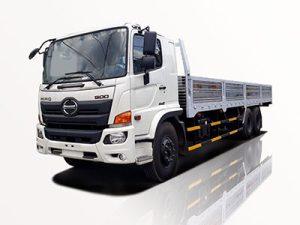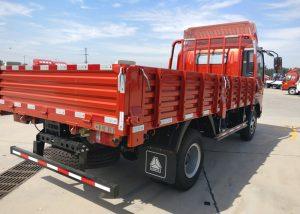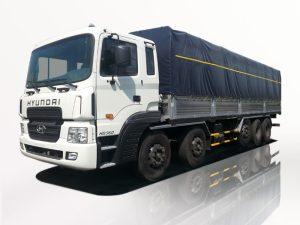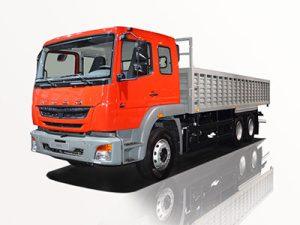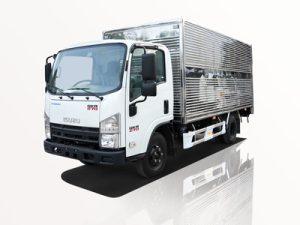Monday to Saturday - 8:00 -17:30
How Many Gallons Are in a Fuel Truck? Understanding Fuel Capacities
When it comes to fuel trucks, understanding their capacity is crucial for logistics, pricing, and operational efficiency. In this article, we will explore how many gallons are typically stored in fuel trucks, the different types of fuel trucks, their applications, and various other relevant aspects to give you a complete overview of this topic.
What is a Fuel Truck?
A fuel truck, also known as a tank truck, is a vehicle designed for transporting liquid fuels, including diesel, gasoline, and other petroleum products. These trucks come in various sizes and shapes, suited for diverse transportation needs. Their main function is to deliver fuel directly to gas stations, businesses, and other customers.
Fuel Truck Capacities
The capacity of a fuel truck can vary significantly based on its design, purpose, and regulatory requirements. Generally, fuel trucks can hold anywhere from 1,500 to 11,600 gallons of fuel or more. Here’s a breakdown of the common capacities:
Types of Fuel Trucks and Their Capacities
1. Small Fuel Trucks
Small fuel trucks usually have a capacity ranging from 1,500 to 3,500 gallons. These vehicles are commonly used for local deliveries and are well-suited for businesses that require smaller quantities of fuel.
2. Medium Fuel Trucks
Medium-sized fuel trucks can carry between 3,500 and 5,500 gallons. These trucks are often found in urban areas and can supply fuel to multiple locations in a single trip.
3. Large Fuel Trucks
Large fuel trucks, designed for high-volume deliveries, can hold between 5,500 and 11,600 gallons. These vehicles are often utilized in commercial sectors, where large quantities of fuel are necessary.
| Type of Fuel Truck | Capacity (Gallons) | Common Uses |
|---|---|---|
| Small Fuel Trucks | 1,500 – 3,500 | Local deliveries |
| Medium Fuel Trucks | 3,500 – 5,500 | Urban supply |
| Large Fuel Trucks | 5,500 – 11,600 | High-volume deliveries |
Fuel Truck Design Features
Fuel trucks are uniquely designed to safely transport fuel. They have several features that enhance their functionality and safety, including:
Tank Design
Fuel tanks are typically cylindrical to withstand the pressure of the liquid inside. They are often constructed with materials such as steel or aluminum for durability.
Compartmentalization
Many fuel trucks have multiple compartments that allow them to carry different types of fuel simultaneously. This feature caters to businesses with varying fuel requirements.
Pumps and Hoses
Equipped with powerful pumps and long hoses, fuel trucks can efficiently load and unload fuel at various locations. Common pump types include gear pumps and diaphragm pumps.
Factors Affecting Fuel Truck Capacity
Understanding the factors that affect the capacity of fuel trucks is crucial for businesses and operators alike. Key factors include:
Regulatory Requirements
The transportation of fuel is heavily regulated to ensure safety and minimize environmental impact. Different regulations can dictate the maximum allowable tank size for fuel transport vehicles.
Vehicle Size and Weight
Fuel trucks must also abide by weight restrictions set by local and federal laws. The overall size of the vehicle can limit its fuel capacity to ensure compliance with these regulations.
Examples of Fuel Truck Capacities
Here are some examples of popular fuel truck models and their respective capacities:
- Freightliner 114SD: Can hold around 3,000 to 5,000 gallons depending on configuration.
- Peterbilt 367: Typically carries about 5,500 to 6,000 gallons.
- International WorkStar: Commonly offers capacities around 6,500 to 10,000 gallons.
Practical Tips for Choosing a Fuel Truck
When selecting a fuel truck, consider the following tips:
1. Assess Your Needs
Determine the demand for fuel delivery in your operations. If you frequently need small quantities, a smaller capacity truck may suffice, while larger operations may require bigger trucks.
2. Review Regulations
Familiarize yourself with local and federal regulations regarding fuel transportation. Compliance is essential to avoid fines and ensure safety.
3. Evaluate Potential Costs
Consider the costs not only for purchasing or leasing the truck but also for maintenance, insurance, and fuel. A comprehensive cost analysis will help you make an informed decision.
Safety Considerations in Fuel Transport
Handling fuel comes with inherent risks. Here are critical safety considerations when operating fuel trucks:
Training for Drivers
Ensure that all drivers are properly trained in the handling and transportation of hazardous materials.
Maintenance Checks
Regular maintenance checks of the truck, including the tank, pumps, and hoses, are necessary to prevent leaks and other safety hazards.
Emergency Procedures
Establish clear emergency response procedures to manage spills or accidents effectively. Ensure all personnel are familiar with these protocols.
Environmental Considerations
Transporting fuel carries significant environmental responsibilities. Key considerations include:
Leak Prevention
Implementing measures to prevent fuel leaks can protect the environment and comply with regulations. Regular inspections and maintenance of the truck are critical.
Spill Response Plans
Having a comprehensive spill response plan can minimize environmental damage in the event of an incident. Training staff on these plans is essential.
FAQs About Fuel Truck Capacities
1. How many gallons can a typical fuel truck hold?
Most fuel trucks hold between 1,500 to 11,600 gallons, depending on their size and design.
2. What type of gas do fuel trucks carry?
Fuel trucks can carry various types of fuel, including gasoline, diesel, and sometimes other petroleum products.
3. Are there regulations on fuel truck sizes?
Yes, there are regulatory restrictions that dictate the size and weight of fuel trucks to ensure safety and compliance with transportation laws.
4. Can fuel trucks deliver multiple types of fuel?
Yes, many fuel trucks are designed with compartments that allow them to deliver multiple types of fuel at once.
5. What training do drivers need for operating fuel trucks?
Drivers must receive training on hazardous materials handling, safety procedures, and compliance with fuel transportation regulations.
6. What should I look for when purchasing a fuel truck?
Consider factors such as capacity, regulatory compliance, maintenance requirements, and total cost of ownership.




